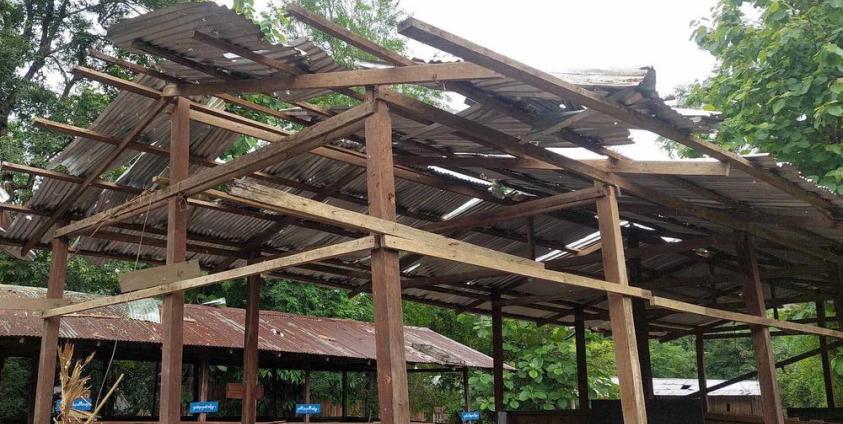The Military Council conducted two airstrikes within a single day in the Mutraw (Hpapun) District, an area under the control of the Karen National Union (KNU).
Close to 7:00 am on June 27th, the Military Council carried out an airstrike on the abandoned Myo Zat Thit (New Generation) school building in Daebuno-Nihtawtipeko village, located in Mutraw District. The attack involved two fighter jets. Later that night around 11:00 PM, there was another air assault on a training center near Mawlekoh village, local sources said.
According to the KNU-Mutraw District news, the morning air raid resulted in no casualties; however, it caused damage to four school buildings.
Daebuno-Nihtawtipeko village has once again become the target of aerial bombardment by the Military Council, marking the third attack. According to Lieutenant Colonel Saw Klal Doh, spokesperson for KNU-Mutraw District, no injuries were reported as the residents had already evacuated the village following the first airstrike, and were not present during the subsequent attacks.
"They unleashed a total of four bombs from two aircraft, resulting in the destruction of four school buildings. While there was some minor damage, they will be easy to repair. There were no casualties as the villagers had wisely abandoned their village following the initial airstrike”, he said.
This region under the authority of the KNU 5th Brigade experienced the most impact from airstrikes during the post-coup period. Extensive surveys conducted by the Karen Education and Culture Department (KECD) have revealed that a substantial number of airstrikes conducted by the Military Council have specifically targeted schools and educational facilities in the area.
Lieutenant Colonel Saw Klal Doh emphasized that a significant number of local residents in the Mutraw District have been forced to flee their homes due to recurrent airstrikes and shelling by the Military Council. These displaced individuals have not yet felt safe enough to return to their homes, and are presently taking shelter in the surrounding forests. Their situation is particularly challenging given the ongoing rainy season, exacerbating their difficulties.
"There are not enough shelters available for those seeking refuge in the forest. The search for food has become even more challenging than before. The forest is also plagued by an overwhelming mosquito population, with an inadequate supply of mosquito nets. Another problem is the urgent need for medical assistance, will malaria
infections rapidly increasing during the rainy season.Lieutenant Colonel Saw Klal Doh added.
According to Lieutenant Colonel Saw Klal Doh, the Junta’s airstrikes have targeted villages with thriving agricultural and orchard activities, compelling local residents to abandon their homes in fear. As a consequence, these displaced individuals are unable to sustain their farming practices, raising significant concerns about potential future food security challenges.








